Lao Dong Newspaper had a conversation with director Victor Vu to listen to his sharing about the concerns of promoting Vietnamese beauty on the big screen.
When Vietnamese beauty is on the big screen
Why did director Victor Vu choose Tuyen Quang as the main setting for filming "Detective Kien" and how did he express the cultural, tourism, and local identity elements through the work?
- Each land carries untold stories. With "Detective Kien", Tuyen Quang is not just a setting - it is a memory, a place to maintain emotional flow. Tuyen Quang has a very strange beauty - calm, rustic, sometimes cold to haunting. Therefore, this location naturally matches the atmosphere of the film, almost without the need to "make" anything more.
I also want to bring the audience a land that has not appeared many times on Vietnamese screens. Tuyen Quang not only has beautiful scenery but also has its own cultural identity. And I believe that when placing the character in such a space, the emotions they express will also be real and multifaceted.
We were also lucky to receive very enthusiastic support from the local government and people throughout the filming process in Tuyen Quang. From the scene survey, asking for permission to film in special areas, to logistics, security, and transportation support - everything is created in the most maximize and full of goodwill.
Which context made the crew work hard and wanted the audience to admire and enjoy it when it was put on screen the most?
- Each setting is like a character, bringing special emotions to the audience. For example, my team and I had to survey dozens of different waterfalls to find the answer: Khuoi Nhi Waterfall. In addition, there are other scenes such as Na Hang, Ban Cai lake... that make the crew very excited.
The setting that impressed me the most was probably the series of scenes filmed in the Na Hang area. It was not only a technical challenge, but also a mental challenge for the entire film crew. The whole group worked together for many days in erratic weather, traveling hard, but in return, the footage was very realistic, very "livable".
The segments taking place in the restored ancient village are what I hope the audience can enjoy the most. I was really excited and happy to feel the ancient, mysterious atmosphere - things that were hard to find on set. I believe that when on screen, these scenes will bring the audience a very different experience.
Before "Detective Kien", he filmed "I see yellow flowers on green grass" in Phu Yen, " Mat Biec" in Hue, "Nguoi ban" in Bac Kan... bringing a positive tourism effect to the locality after the film aired. Is this a coincidence or a initial wish when you chose these settings?
- From a certain perspective, I also hope that the beautiful scenes in my film will make the audience pay attention and love these lands more. Vietnam has too many wonderful scenery that have not been fully exploited on screen. And if cinema can contribute to spreading that beauty, I find it a very valuable thing - although this is not the original goal.
Phu Yen in the film "I see yellow flowers on green grass" is a nostalgic childhood; Hue in " Mat Biec" is a gentle loneliness; Bac Kan in "The Last Wife" has an ancient beauty, many cultural layers. And Tuyen Quang in "Detective Kien" is both quiet and vague, as if born to contain unspeakable secrets.
Each land I choose, whether Phu Yen, Hue, Bac Kan or this time Tuyen Quang, gives me a very specific feeling. It was as if that place was whispering the story I needed to tell.
In your opinion, if used well, can movies become a powerful tool to promote the beauty of Vietnam tourism to audiences not only domestically but also internationally?
- I believe that if exploited properly, cinema can completely become a "door" for domestic and foreign audiences to know the beauty of Vietnam naturally, without forcing. nothing touches emotions quickly with a beautiful frame, an everyday moment told in cinematic language. And sometimes, just a short film, people want to go there, not just to see, but to feel.
Of course, to do that, films cannot be just beautiful in appearance. The story, the characters, the atmosphere... must all blend together. So that when the audience looks at it, they not only see a place, but also the soul of that place. And if we can do that, cinema is one of the most sustainable and sophisticated ways to promote that we have.
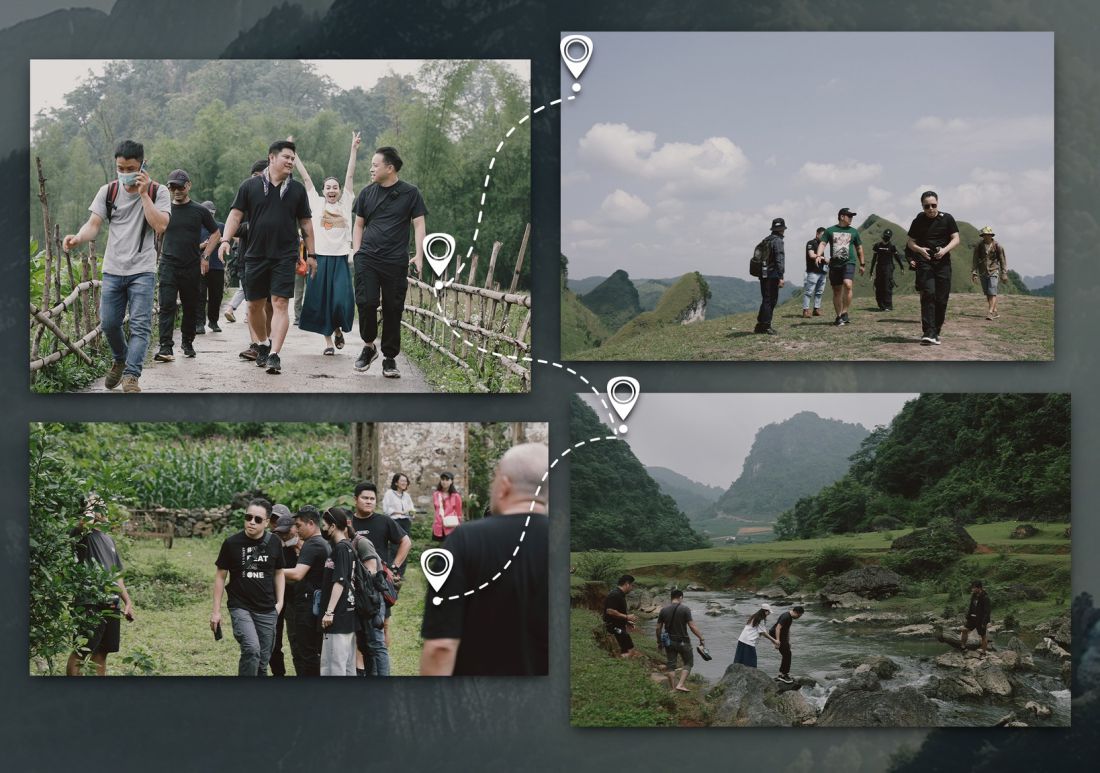
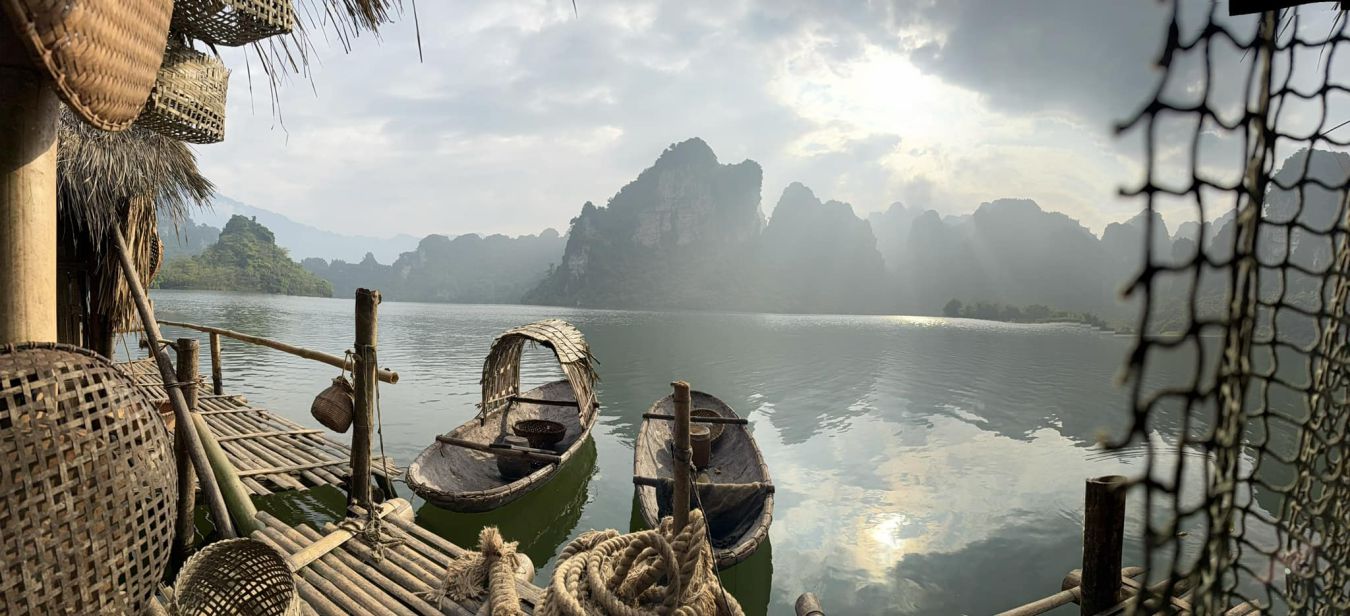
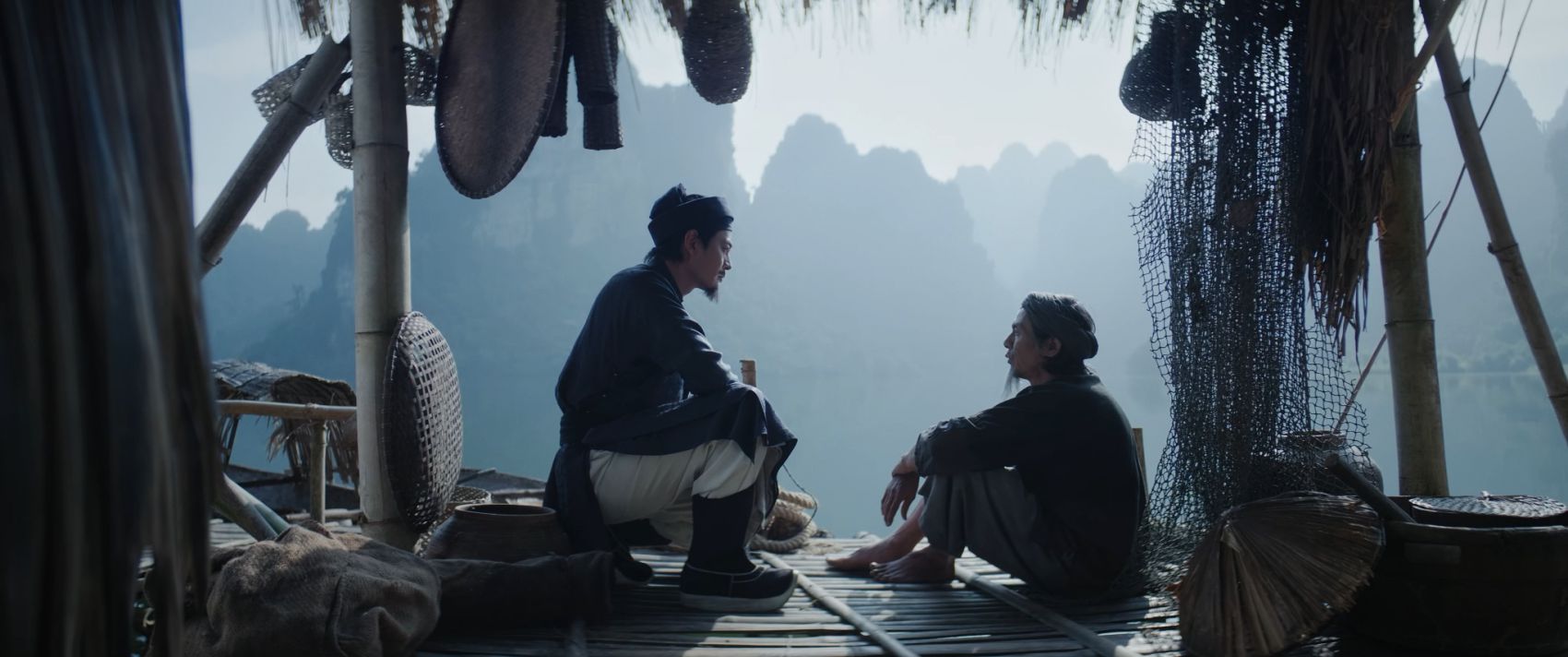
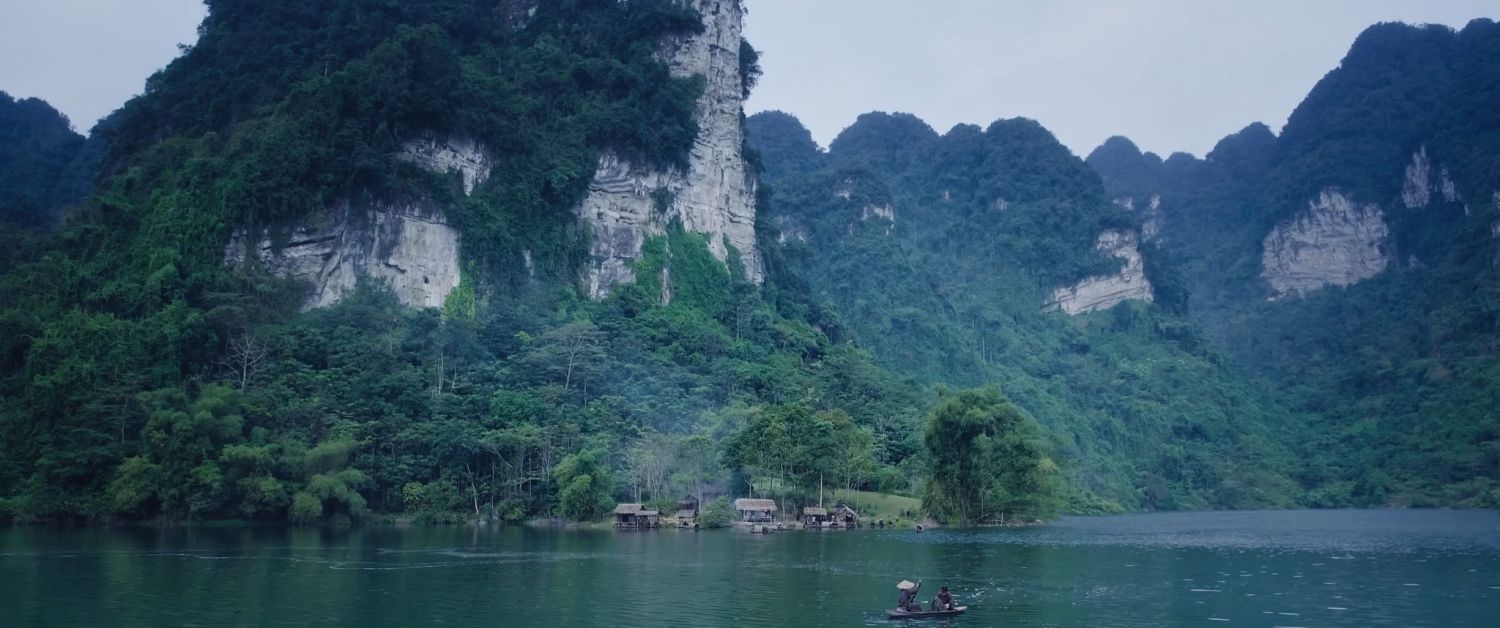
For the beauty of Vietnam to reach out to the world
With available potential, Vietnam used to be the film set of major film crews such as Kong: Skull Island or some other music and film projects... In your opinion, what strengths and potential does Vietnam have to become the film set of major film crews, not only domestically but also internationally?
- We own many natural advantages that not every country has - diverse landscapes, colorful climates, scenery from forests, mountains, plains to urban areas, all very cinematic. However, the important thing is not just the beauty of nature. It is the way we organize to turn that beauty into a professional filming location.
If the logistics system, human resources, and production support services are invested in more systematically, I believe Vietnam will be a worthy choice on the international cinema map. As a director, I really hope to see many international film crews come and tell their stories in Vietnam. Not only to promote the country's image, but also to give domestic filmmakers more opportunities to collaborate, learn and improve their careers.
On the other hand, what are the disadvantages and barriers of Vietnam in attracting foreign film crews?
- Despite the advantage of landscape, infrastructure and logistics services in many places have not really met the needs of large film crews. Transporting equipment, arranging accommodation, or ensuring production progress in specific terrains is sometimes still a challenge.
On the other hand, Vietnam is still not really widely known as a cinematic destination on the international map. We have too many great materials, but we do not have enough opportunities to introduce them to our friends around the world in a systematic and synchronous way. Therefore, promoting and building the image of Vietnam as a potential film studio still requires more efforts from both the film industry and related parties.
I believe that when the stories are told well enough and the settings are seen enough, the world will start to be curious and want to find them.
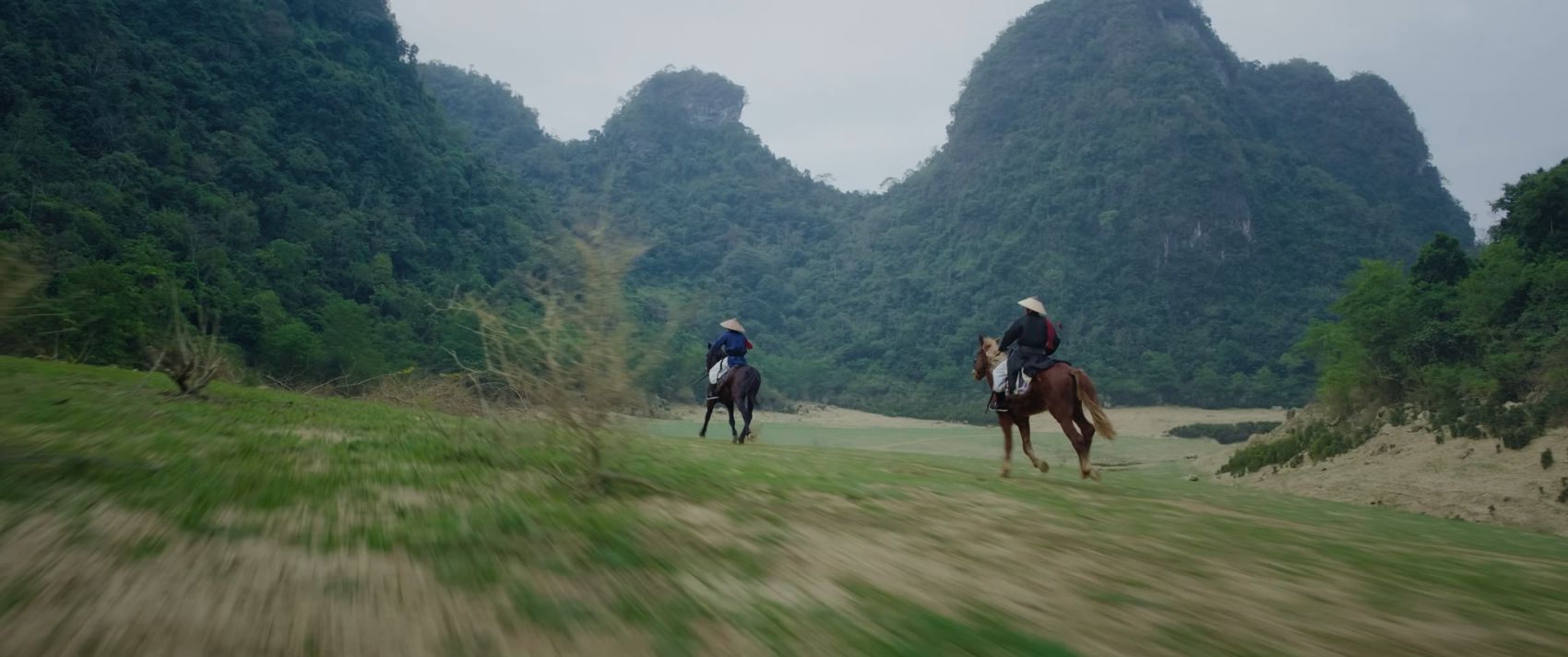
Some current provinces and cities such as Quang Binh, Long An, Cat Ba... have proactive policies to support attracting domestic and foreign film crews to the province to film. As a filmmaker, what benefits do you think this will bring to both sides?
- I think that when a locality proactively opens its heart to cinema, it is a very valuable two-way relationship. For filmmakers, that means they have access to new settings, with support in terms of logistics and logistics. This helps save time, costs and especially maintain the integrity of the image you want to tell.
This cooperation gives us a feeling of being welcomed, and from there, creative work is also smoother and smoother.
On the contrary, for the locality, appearing in a meticulous film will be a way to spread a strong image that not every promotional campaign can do. The audience comes to a land through story, through emotion. And when they are moved by what they see in the film, they will want to come, want to learn, and from there, culture - tourism - people are naturally "touched".
The important thing is that both sides have faith in each other, that we are doing something beautiful and of long-term value together.
In your opinion, what can the local government do to support film crews in filming and promoting the beauty of Vietnam to the world?
- What I and other directors and filmmakers always want is to have a favorable working environment, where the setting and the story can connect most naturally. With more appropriate support from the locality, I believe the production process will be more smooth, thereby bringing more complete finished products to the audience.
If each film is properly cared for, it can become a "door" for the audience to know, feel and love a certain land more. I think it is a relationship that both sides can benefit from, if we look at it in the long term.











